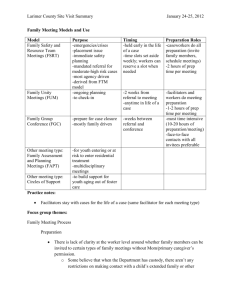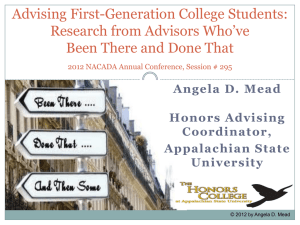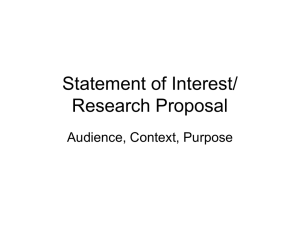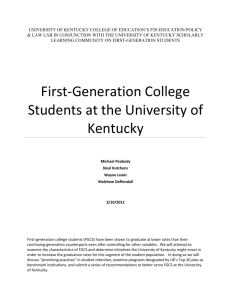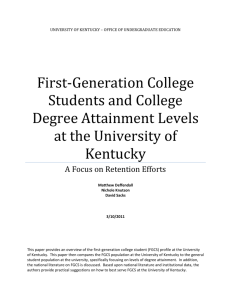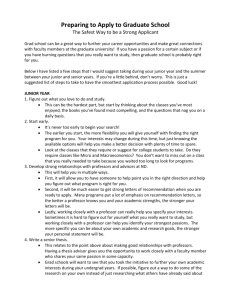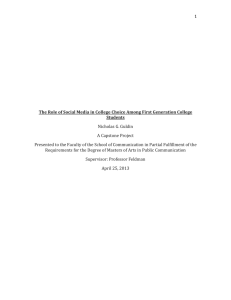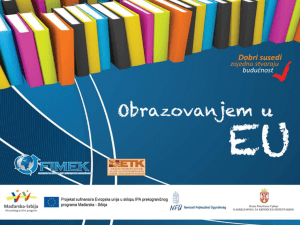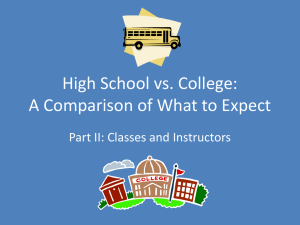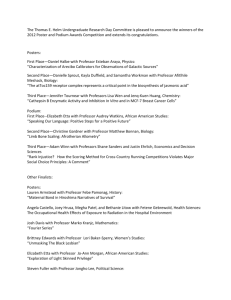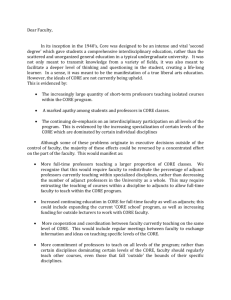Best Practices on Working with First Generation College Students
advertisement
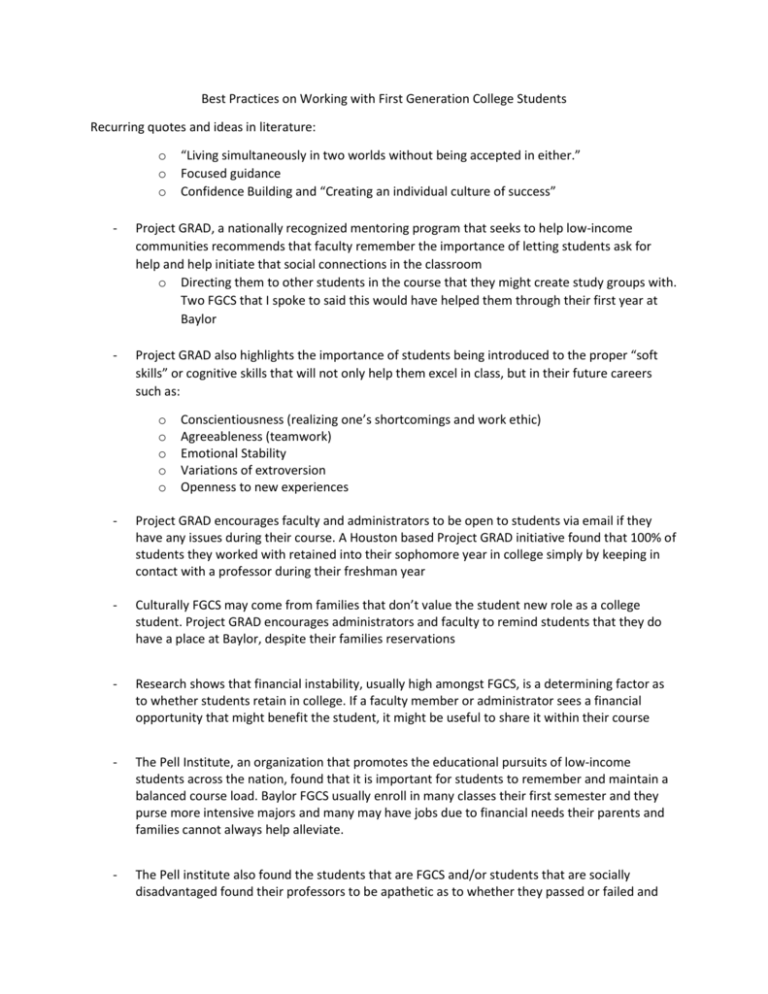
Best Practices on Working with First Generation College Students Recurring quotes and ideas in literature: o o o “Living simultaneously in two worlds without being accepted in either.” Focused guidance Confidence Building and “Creating an individual culture of success” - Project GRAD, a nationally recognized mentoring program that seeks to help low-income communities recommends that faculty remember the importance of letting students ask for help and help initiate that social connections in the classroom o Directing them to other students in the course that they might create study groups with. Two FGCS that I spoke to said this would have helped them through their first year at Baylor - Project GRAD also highlights the importance of students being introduced to the proper “soft skills” or cognitive skills that will not only help them excel in class, but in their future careers such as: o o o o o Conscientiousness (realizing one’s shortcomings and work ethic) Agreeableness (teamwork) Emotional Stability Variations of extroversion Openness to new experiences - Project GRAD encourages faculty and administrators to be open to students via email if they have any issues during their course. A Houston based Project GRAD initiative found that 100% of students they worked with retained into their sophomore year in college simply by keeping in contact with a professor during their freshman year - Culturally FGCS may come from families that don’t value the student new role as a college student. Project GRAD encourages administrators and faculty to remind students that they do have a place at Baylor, despite their families reservations - Research shows that financial instability, usually high amongst FGCS, is a determining factor as to whether students retain in college. If a faculty member or administrator sees a financial opportunity that might benefit the student, it might be useful to share it within their course - The Pell Institute, an organization that promotes the educational pursuits of low-income students across the nation, found that it is important for students to remember and maintain a balanced course load. Baylor FGCS usually enroll in many classes their first semester and they purse more intensive majors and many may have jobs due to financial needs their parents and families cannot always help alleviate. - The Pell institute also found the students that are FGCS and/or students that are socially disadvantaged found their professors to be apathetic as to whether they passed or failed and also expressed feelings of intimidation towards their professors. Professors can encourage students to meet with them during office hours and by appointment to try and alleviate those insecurities - If possible, the Pell institute recommends taking a “case management” approach when it comes to academically tracking the FGCS in their courses. Faculty can encourage student to meet with them frequently to better understand their needs in order to better assist the student. MAP works can become useful here, as professors can view and address any risk factors the student may be exhibiting - The Pell Institute as well as institute for higher education policy encourages faculty and administrators to share FGCS retention methods with other colleagues that are faculty or administrators in their university so they can too can better assist any FGCS they come to find in their courses - Encourage students to connect with NSE mentor, if Student Life has assigned you one. The NSE peer leader can also direct students to supplementary instruction, research shows that FGCS and disadvantaged students may not always be aware of supplemental instruction or tutorial programs that are available to them, and they don’t have the same help navigating college as their non-FGCS peers that have parents and/or siblings that attended college. - It’s really important to incorporate u/BU 1000 curriculum such as study skills and analytical skills into course, FGCS will learn to apply it into their work early on and Pell institute research shows they not only frequently put it into practice, they also pass it onto their student peers - Research shows that FGCS normally see attending college view it solely as a method of getting a good job and/or prepare them for a specific career. Professors can work to shift that viewpoint into one that not only cultivates the academic aspect of attending college But the holistic one as well - Research shows that self-regulation skills such as time management and study skills empower students and engage them in the process of learning. Research also shows that self-regulated learning is the most significant factor that leads to a higher GPA for FGCS. FGCS normally don’t have family members or role models they can receive this advice from. The greater the amount of skill they learn and practice, the higher the GPA - Professors can encourage FGCS in their NSE course to attend workshops/seminars/events that will help FGCS engage with peers and administrators that are interested and focus on the academic success and needs of first-generation students, if they are aware of any - Research shows that novice-to-expert models of mentoring are helpful for FGCS. Research also shows that FGCS thrive in college better when they establish a strong academic contact that provides validation that they are capable of completing college-level work, that their ideas and opinions have value, and that they are worthy of the attention and respect of faculty, staff, and peers. - Depending on the level of involvement that a professor would like to have in the lives of FGCS, research shows that professors serving as educators and advocates of FGCS and their families. Baylor University has a parents network with staff who keep in touch with parents and provide a network for communication
